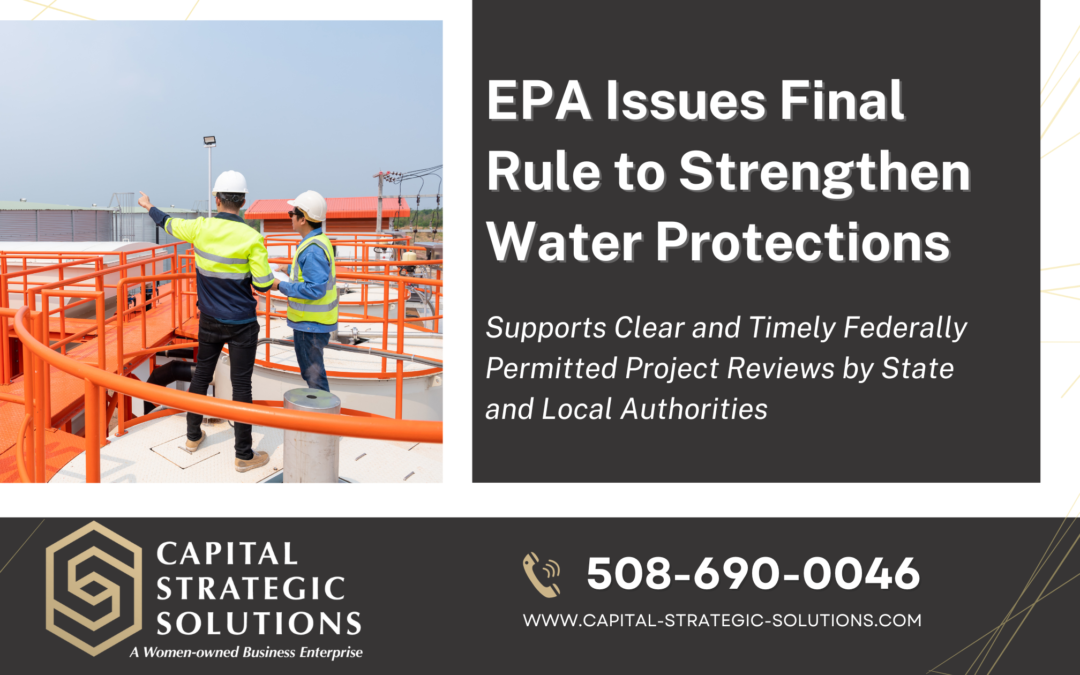The U.S. Environmental Protection Agency (EPA) recently announced in a Sept. 14 news release a final rule to restore the fundamental authority granted by Congress to states, territories and Tribes to protect water resources that are essential to healthy people and thriving communities. The agency’s final Clean Water Act Section 401 Water Quality Certification Improvement Rule will support clear, efficient and focused water quality reviews of infrastructure and development projects that are key to economic growth.
Clean Water Act Section 401 enables states, territories and authorized Tribes to protect their water quality from adverse impacts of construction or operation of federally permitted projects. Under Section 401 of the Act, a federal agency may not issue a license or permit to conduct any activity that may result in any discharge into a water of the United States, unless the appropriate state, territory or authorized Tribe issues a CWA Section 401 water quality certification or waives certification. EPA’s 2023 rule realigns the scope of Section 401 certification with decades of established practice and restores and strengthens the role of states, territories and authorized Tribes.
The rule enhances certification review and provides regulatory certainty to advance federally permitted projects. For example, the rule establishes a 6-month default timeframe (when the federal agency and certifying authority fail to reach an agreement) and a 1-year maximum timeframe for certification review (the statutory maximum). The rule emphasizes that states, territories, and Tribes may only consider the adverse water quality-impacts from the activity. To limit delays, the rule also provides a clear approach to defining the required contents in a request for certification.
For more information, including a pre-publication version of the Federal Register notice, fact sheets and information on upcoming trainings about the final rule, visit EPA’s CWA section 401 website https://www.epa.gov/cwa-401

